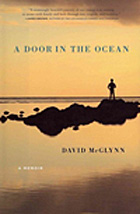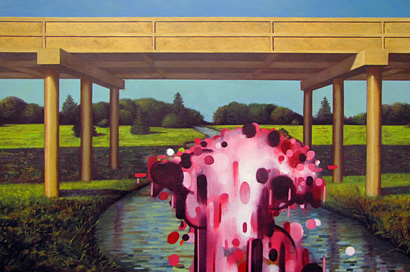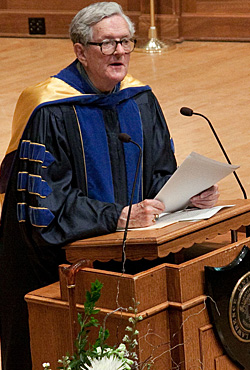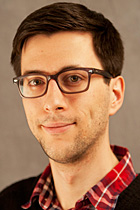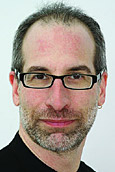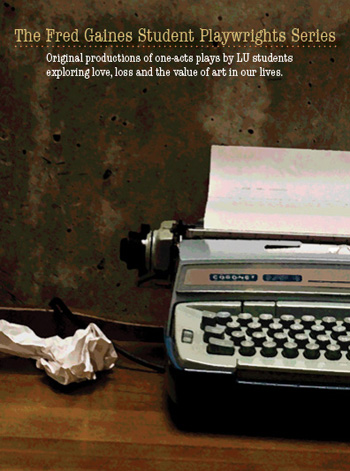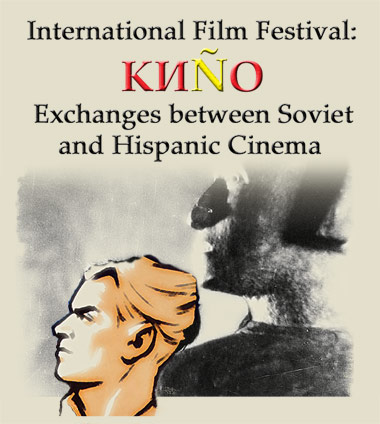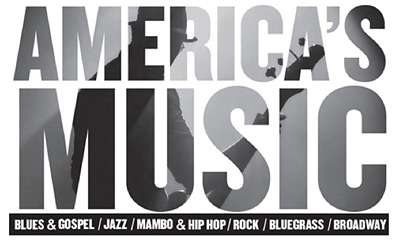Chelsea Johnson has been focused on “making a difference” since arriving on the Lawrence University campus in the fall of 2010. Her efforts have not gone unnoticed.
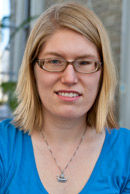
The Lawrence University junior from Avon, Ind., has been named one of only 50 national recipients representing 43 colleges of a $5,000 Udall Scholarship. Selected from among 488 candidates. Johnson was one of only two scholars chosen from a Wisconsin college or university.
Awarded by the Arizona-based Morris K. Udall and Stewart L. Udall Foundation, the scholarships are awarded to students committed to careers related to the environment, tribal public policy, or Native American health care.
“I’m interested in the connections between people and their environment and how to make that connection healthier,” said Johnson, an environmental studies and English major. “It’s not just about taking care of the planet, but also about taking care of the people who live on it. The environmental movement has to work on both sides of the equation.”
Co-founder of The Magpie
For the past two years, Johnson has served as president of Greenfire, the campus student environmental organization and is also the current student liaison to the campus’ Green Roots committee. She co-founded the Magpie, a once-a-term, student-run thrift store that collects used clothing and books for resale, with the proceeds used to support various national and international environmental groups.
“The idea behind the Magpie is to raise awareness on the clothing consumption industry, which encourages fast fashion at the expense of the environment and human rights,” said Johnson, who spent the 2012 fall term on the Sea Semester program, which included six weeks living on a sail boat in the Caribbean.
As a freshman, she helped organize a group of student volunteers to help out at local cat shelter and has been active as a “buddy” in Lawrence’s LARY tutoring program.
“Chelsea is both a student and steward of the environment,” said Marcia Bjornerud, professor of geology and Walter Shober Professor of Environmental Studies. “She embodies the new generation of environmental leaders — smart, passionate and pragmatic. We are so pleased that her academic work and activism have been recognized at the national level.”
Attending Orientation in Arizona
As a Udall Scholar, Johnson will participate in a four-day Scholar Orientation Aug. 7-11 in Tucson, Ariz., where she will meet with environmental policymakers and community leaders as well as other scholarship winners and program alumni.
“I’ll be around a lot of really smart people, which will be great,” Johnson said of the upcoming orientation. “It’s really an honor and a blessing to be awarded this scholarship. I’m grateful for all the communities at Lawrence that have supported me in all my various projects. I look forward to giving back to those communities in the future.”
Johnson is Lawrence’s fifth Udall Scholarship recipient in the program’s 17-year history, joining Hava Blair (2012), Stephen Rogness (2003), Gustavo Setrini (2001) and Jacob Brenner (1999).
Founded in 1992, the Morris K. Udall and Stewart L. Udall Foundation is one of five federal foundations established by Congress. Among the missions of the foundation is to increase awareness of the importance of the nation’s natural resources, foster a greater recognition and understanding of the role of the environment, public lands and resources in the development of the United States and identify critical environmental issues.
About Lawrence University
Founded in 1847, Lawrence University uniquely integrates a college of liberal arts and sciences with a nationally recognized conservatory of music, both devoted exclusively to undergraduate education. It was selected for inclusion in the Fiske Guide to Colleges 2013 and the book “Colleges That Change Lives: 40 Schools That Will Change the Way You Think About College.” Individualized learning, the development of multiple interests and community engagement are central to the Lawrence experience. Lawrence draws its 1,500 students from nearly every state and more than 50 countries. Follow Lawrence on Facebook.

